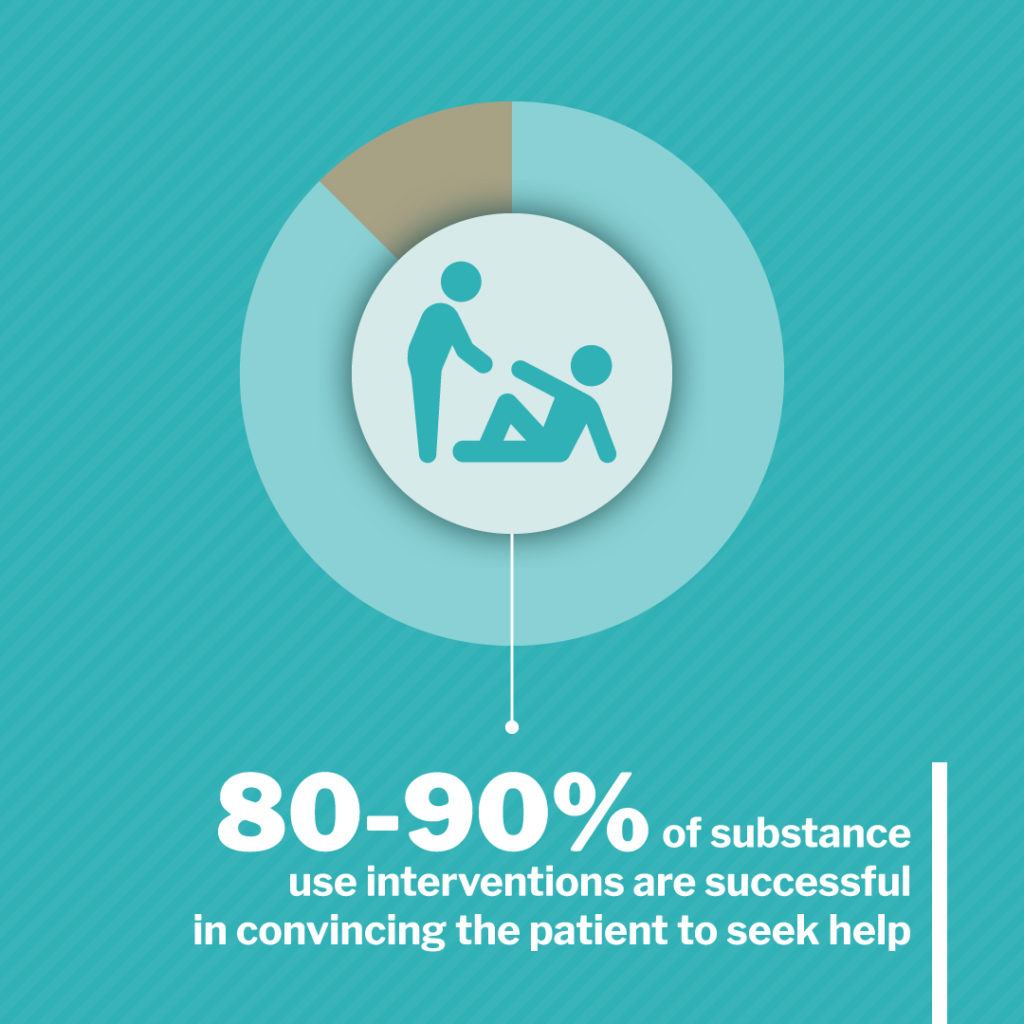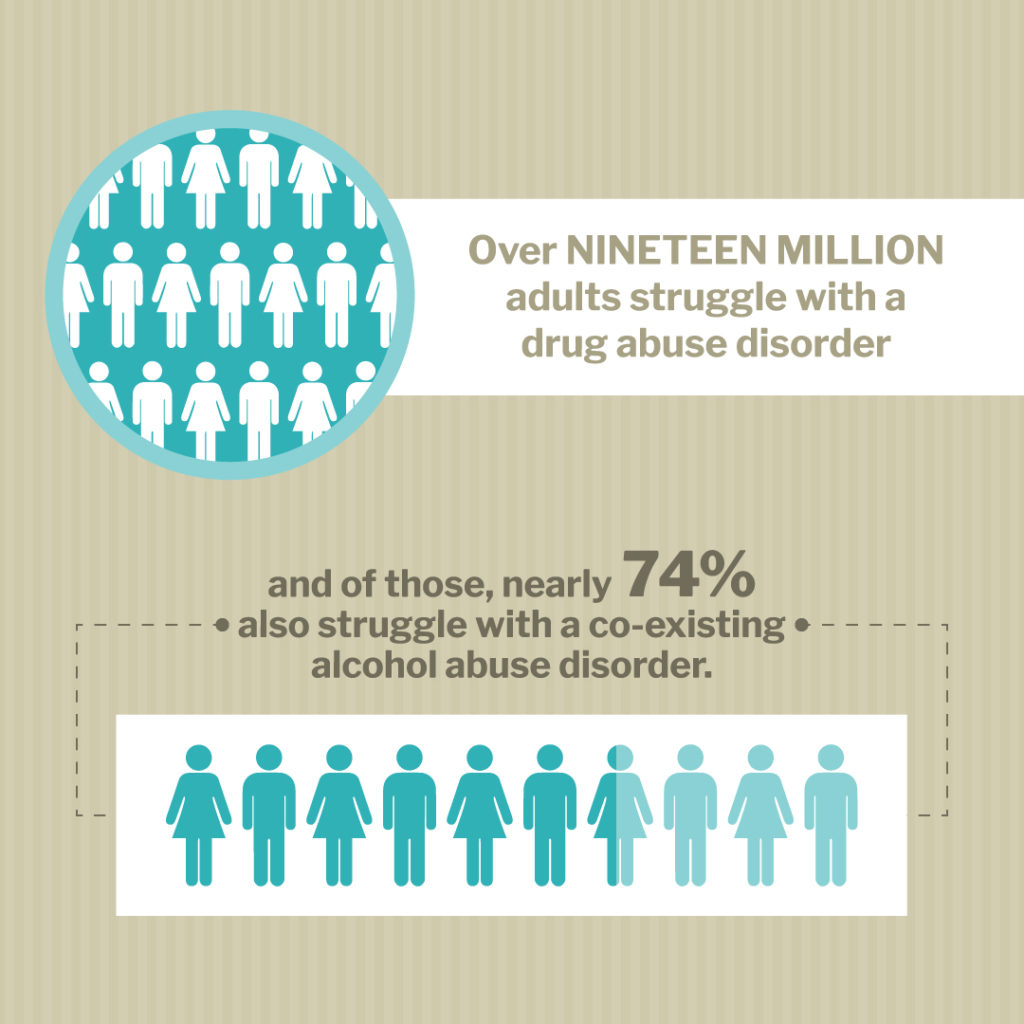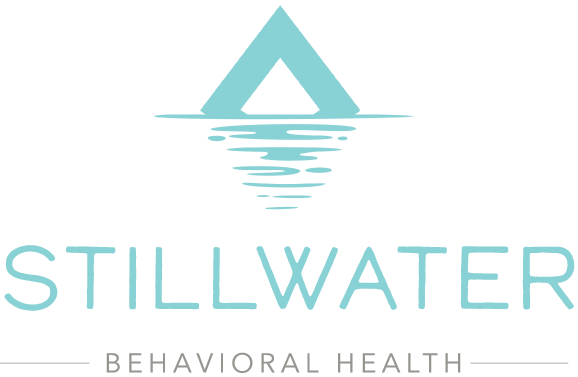How to do an Alcohol Intervention: Ultimate Guide
It can be difficult to witness a loved one struggle with a substance use disorder. Learn about intercession methods below.
Table of contents
- What is an Intervention?
- Alcohol Intervention
- Drug Intervention
- Untraditional Types of Intervention
- Traditional Types of Interventions
- How To Do an Intervention
- Can a Professional Interventionist Be Helpful?
- Tips for a Successful Intervention
- We Can Help You with Drug and Alcohol Intervention
- Resources
What is an Intervention?
In a situation involving substance use disorder, planning an intervention may be the best, and safest, option to help someone who is living with an addiction. So, what does intervention mean? An intervention is a strategically planned process of confronting the person who is living with addiction about the consequences of their actions while simultaneously encouraging them to accept help and treatment for their addiction.1
The key feature of an intercession is that while it can be an immensely helpful option in convincing a person that they should seek treatment, it should not be done solely by friends and family members. Without the aid of a specialist, or someone who is equally trained in the process of interventions, an intervention may do more harm than good.
An intervention specialist is someone that has been professionally trained in helping people break free from their addictions. They can help a person without judgment, emotions, or blame to understand how their actions are negatively impacting themselves and those that they care about.
When performed properly, without judgment or pressure, and with the aid of a qualified intercession specialist, 80-90% of substance use interventions are successful in convincing the patient to seek help.2
Questions about addiction?
Call Us Now: 1-866-232-9103
Your call is confidential with no obligation required to speak with us.
Early Intervention
Treatment is more effective the earlier that it begins for an alcohol or drug abuse disorder. As with any other health condition, early intervention and treatment can prevent more significant problems further on in life.
Unfortunately, in many cases, an alcohol addiction intervention or a drug abuse intercession does not take place until most other options have been exhausted. It can be difficult for those struggling with a substance use disorder to realize or admit that they need help.
It often takes a life-altering event, such as a divorce, loss of employment, or a housing crisis for a person to be willing to seek treatment. Because early
alcohol and drug intercession can be so beneficial, first responders must be able to recognize the symptoms of substance abuse.3
What is a Nursing Intervention?
Nursing interventions are often the first time a patient will experience care for their disorder. It takes place when someone enters a care facility such as a clinic or hospital for a condition that may or may not be caused or exacerbated by their substance use disorder.
After initial evaluation and stabilization, a nurse will take action to help their patient by suggesting healthy physical or emotional coping mechanisms for a patient that wants to quit using the substance that they are addicted to. The nurse will also be able to offer education and information to the patient about other treatment facilities or care providers that can help them on their road to recovery.

Alcohol Intervention
A Further Look at Interventions
Nearly 50% of adults in America regularly drink alcohol, and it is believed that as many as 25% of those Americans have an alcohol addiction, most commonly in the form of binge drinking. In many situations, once a person with an alcohol use disorder realizes the way that alcohol is negatively impacting their life, they can reduce the amount that they drink, or even quit entirely, without outside assistance.
However, some people that have an alcohol use disorder are unable to see how their addiction is negatively affecting them. In this situation, an alcohol use intercession can be extremely beneficial. Some of the benefits of interventions include:
- Showing the person with the addiction the consequences of their actions to this point as well as the potential consequences that may happen if they do not seek treatment.
- Showing them the available treatment options, and helping them understand that people are willing to help them with their addiction.
- Showing them how their alcohol addiction has impacted their friends and family members.
- Showing them that things are not hopeless, that they can recover, and that they can take charge of their life once more.
Drug Intervention
Over nineteen million adults struggle with a drug abuse disorder and of those, nearly 74% also struggle with a co-existing alcohol abuse disorder. Drug abuse and addiction can be a much harder disorder to recover from than alcohol addiction, particularly due to the high rate of co-use that most people with a substance use disorder experience.
In many cases, suddenly stopping the use of an illicit substance can be just as harmful, if not more so than using the substance itself. The side effects and withdrawal symptoms that a person may experience when they decide to stop using a substance can be severe and at times life-threatening.
These withdrawal symptoms can make those who have a substance use disorder unwilling or afraid to stop using the substances that they believe they need to function. It quickly becomes an uphill battle, and in many cases, they may not realize that help is available and they may feel stuck.
Luckily, substance use is a highly treatable disorder and several medications can help a person wean off of illicit substances in a safe, sustained, and monitored manner. A drug abuse intervention can help someone realize that they have options and that they can recover safely and healthily.

Who Should Perform an Intervention and When Should One Be Used?
An intervention should be performed when an individual’s substance use has caused pain to themselves or their loved ones. When a person begins to believe that they need a substance to function, or when their actions have caused a negative consequence for themselves, their friends, or their family members, then it is time for an intervention.
An intercession should never be performed solely by friends or family members. At best, this approach leads the person that they are trying to help to disregard their concerns and continue what they are doing. At worst, it could cause them to become completely alienated from their friends and family members as they may view the intervention as a direct attack upon them.
It is important that a drug or alcohol intervention only be performed with the aid of an intervention specialist that has been trained in handling this delicate situation. In some cases, particularly if the person that requires the intercession is religious, the aid of a priest or other faith leader may be beneficial. It is important to discuss this option with the specialist beforehand to ensure that it is the right course of action.
Untraditional Types of Intervention
There are traditionally four types of interventions that are used to help those that may be struggling with a substance use disorder. The first two in the following list, crisis intervention, and brief intercession, are not traditional methods.
Rather, they are methods used by medical professionals that may only have a brief interaction with the person that they are treating. These are not as effective as the other four traditional methods that involve friends and family members.
Crisis Intervention
In some cases, you will have little to no time to prepare a full intervention because the person you are hoping to help is an immediate danger to themselves or others. In this type of situation, a crisis intervention will take place.
A crisis is defined as an overwhelming event that causes physical, emotional, or mental trauma to a person. Crisis intervention is a short-term and immediate response to such a situation, and is typically performed by trained medical personnel first responders.4
Brief Intervention
A brief intervention is more accurately a method of risk assessment and screening procedure than it is a true method of intercession or treatment. This type typically attempts to get the person that is struggling with substance abuse to think differently about the way that they view their dependency.
This technique also tends to focus more on providing healthier ways to consume these substances and treatment options for those that are not ready or willing to stop using them. It is more of a harm reduction technique than an intervention.5
Traditional Types of Interventions
The Johnson Model
The Johnson Model is what most people think about when they hear the term intervention. This is the traditional or classical version of an intercession. A person’s peer network is engaged in the process and their family members and friends help the patient to realize the harm that their actions are causing themselves and others.
With the aid of an intercession specialist, the Johnson Model is the most successful method of convincing patients to seek in-patient treatment for their substance use disorder.
In this method, once the process has taken place, the family and loved ones of the individual make it clear that they will not be a part of their life anymore if they refuse therapy. Emphasis is placed on the fact that while they still support the individual, they cannot allow themselves to suffer more harm at the hands of their substance use disorder.
This plan emphasizes the essential role of a patient’s loved ones in their recovery and encourages them to continue providing support once they have begun their journey to recovery.
Albany-Rochester Interventional Sequence for Engagement (ARISE)
This method was created to help engage individuals that were more reluctant in seeking treatment. The main difference with this method is that the individual that has a substance use disorder is part of the process from the beginning.6
This method works by keeping everything out in the open and having everyone involved work through a three-step process. It can be halted immediately at any stage when the individual decides to undergo treatment. The steps are:
- The primary phase starts with a concerned family member or friend calling an interventionist that specializes in the ARISE method. They are instructed to gather friends and family members as well as the individual with the addiction for a primary meeting that will be led by the specialist.
- Two to five subsequent gatherings may take place in phase two.
- This is the formal intercession stage that enforces strict consequences if they refuse treatment.
SMART
SMART stands for self-management and recovery training. It is a free, nationwide program that offers education about addiction and teaches coping mechanisms. It helps to empower people to learn how to overcome addictions on their own.
Family Systemic Intervention
This method of intervention not only confronts the individual with the addiction but also the family members that are enabling or contributing to their addiction as well. In some situations, all members of the family may be struggling with addiction, and this method helps to get them into treatment as a group.
How To Do an Intervention

There are several intervention models for alcohol abuse that are equally effective. It is important to realize that an intercession is often not a quick process, nor is it an immediate cure. It is the beginning of a conversation and a way to help a person realize the consequences of their actions and the treatment options that are available to them.
There are several steps taken to ensure that intercession will be successful. Before the process begins, there is a significant amount of preparation involved, both by the professionals that have been recruited as well as by the friends and family members of the person with the disorder.
Research Treatment Options
The first, and arguably most crucial step, is to thoroughly research the treatment options that are available to the person that has a substance use disorder. Once you have decided upon the treatment option that will be most beneficial and you have selected your intervention specialist, then you are ready to begin.
Form the Intervention Team
The intervention team is the group that will personally and actively participate in the intervention. A date, location, and time will be selected that everyone will commit to for the intercession. In most cases, it is better to not inform the individual that they will be the subject of intervention until it is time for the meeting to begin.
The intercession team will consist of the person with the addiction, friends, and family, a therapist, and a professional interventionist.
Make a Plan
You must go into the intervention knowing exactly what you want to say and how to say it. You should also have a treatment plan in place if they decide to seek help. Not having a plan can lead to a disaster and may further alienate the individual that you are trying to help.
Discuss the plan with the intervention team before the day of the intercession, and if possible, host a rehearsal intervention to ensure that everything will go according to plan.
Gather Information
Understand everything that you can about your loved one’s addiction. By understanding and researching the condition, addiction, and substances that they are using, you will have a better understanding of their motivations and what is driving them to substance abuse.
Write Impact Statements
Everyone that is at the intervention should be there for a reason, and they should each have something to say about the way that the addiction has harmed them or their relationship with the person with the addiction. These statements should be open, honest, and emotional but should refrain from attacking the individual.
Decide on Specific Consequences
Your loved one may not accept help, or they may be unwilling to seek treatment. In this case, each person at the intervention must have a specific consequence that they are willing and able to activate and stick to. For example, parents may tell their adult children that they have to move out if they will not seek treatment.
Manage Expectations and Risks
It is important to hope for the best but to plan for the worst. Although we hope that everyone that goes through an intervention will be willing to seek treatment afterward, we know that is not the case. Sometimes a person may become angry, violent, or suicidal after the intervention. It is important to have a plan in place for all of these situations.
Seek Help
Get advice from a professional before you hold the intervention. A therapist, intercession specialist, or anyone else who works with individuals that struggle with substance abuse can give you valuable information to use during the intercession.
Follow Up
It is critical that once a person has agreed to treatment that they are supported through their recovery. Recovery is a long process and it is important that the people who helped them seek treatment be by their side throughout the process.
Can a Professional Interventionist Be Helpful?
Stages of Change in Recovery
In the majority of interventions, it is extremely beneficial to enlist the aid of an intercession specialist. Not only can they help ensure that the intervention will have the highest chance of success, but they can also aid friends and family members that may have been affected by the subject of the intervention’s actions.
Before the event, the specialist will meet with the intervention team and will help them understand the reasons behind their loved one’s actions. They will take the time to educate the person’s friends and family members about addiction, compulsive behaviors, and the stereotypes surrounding substance use disorders.
This process allows those on the intercession team to prepare themselves for what is likely to happen during and after the event, and it equips them with healthy coping mechanisms. In addition, they will be better equipped to help their loved ones as they go through the process of recovery and treatment.
Can a Professional Interventionist Be Helpful?
What is Recovery?
In the majority of interventions, it is extremely beneficial to enlist the aid of an intercession specialist. Not only can they help ensure that the intervention will have the highest chance of success, but they can also aid friends and family members that may have been affected by the subject of the intervention’s actions.
Before the event, the specialist will meet with the intervention team and will help them understand the reasons behind their loved one’s actions. They will take the time to educate the person’s friends and family members about addiction, compulsive behaviors, and the stereotypes surrounding substance use disorders.
This process allows those on the intercession team to prepare themselves for what is likely to happen during and after the event, and it equips them with healthy coping mechanisms. In addition, they will be better equipped to help their loved ones as they go through the process of recovery and treatment.
How to Find a Professional Interventionist
It is important to make sure that the intervention specialist you use is properly licensed and certified. Ideally, they will be a medical professional that is a Certified Intercession Professional and that has experience with the type of intervention that they are recommending.
In many cases, a mental health professional, clinic, or substance abuse treatment center will be able to provide a referral or resources that they need to find a recommended intercession specialist.
Once you have decided upon a specialist, sit down and talk with them about what you are hoping to accomplish with the intercession, what course of action that they recommend, and who exactly needs to be involved. Everyone who is going to be present must be involved from the beginning to ensure that everyone remains on the same page.
Finally, consider the costs of hiring an intercession specialist. In some cases, the patient’s insurance may cover part or all of the cost of an intercession. While you do not have to hire an intercession specialist to perform an intervention, it is essential to realize that your chances of success will be much higher with the help of a professional.
Tips for a Successful Intervention
There are several things that you can do to help increase your chances of a successful intervention. Some things to keep in mind are:
- Do not hold an intervention without a plan.
- Do not make the intervention more elaborate or difficult than it needs to be.
- Try to plan the time of the intercession to where you can be reasonably sure that the person that you are trying to help will be sober.
- Research their addiction and possible treatment options beforehand.
- Hold a rehearsal intervention with everyone that will be helping, which can ensure that things go as smoothly as possible on the day of the intervention.
- Avoid confrontation. You are not there to physically force them into treatment or to make them feel bad about their actions. Do not accuse them of anything and avoid name-calling. Be sympathetic and calm even though they will likely be upset.
- Be prepared to take them to a treatment facility immediately if they decide to accept help.
An intervention can be a nerve-wracking and emotionally charged situation. Remain calm and collected during the process, and be ready to accept their decision whether positive or negative. At the end of the day, you cannot force them to accept treatment, and it will only be effective if they decide to seek help themselves.

We Can Help You with Drug and Alcohol Intervention
You do not need to fight addiction on your own. Our highly trained specialists at Stillwater Behavioral Health can help make a difference in your loved one’s intervention. We know how important it is that people make the decision to seek help for themselves, and we are dedicated to helping people understand their treatment options.
Our Featured Centers are Offering Intervention Services
Check our website or reach out to our support team today to see if we offer intervention services in your area.
Consult a Drug and Alcohol Intervention Specialist
We strive to make the process of holding an intercession as easy as possible. Our caring and compassionate team of intercession specialists are here to help your loved one get the help that they need.
It is our goal to offer an affordable solution for the intervention that your loved one needs. Your intercession specialist will help you understand the root cause of your loved one’s addiction, and they will inform you of the best treatment options available for their unique situation.
Drug and Alcohol Intervention Programs
We offer some of the most effective drug intervention programs and alcohol addiction programs in the country. Our specialists are trained in each of the above intercession methods and will be able to help you decide which one is best for the intercession that you are planning.
Why Choose Us?
We offer the highest standard of patient-centered care through our intervention services. Our highly trained, qualified, and compassionate drug and alcohol intervention specialists are ready to help.
Resources
- https://www.mayoclinic.org/diseases-conditions/mental-illness/in-depth/intervention/art-20047451
- https://addiction.surgeongeneral.gov/executive-summary/report/early-intervention-treatment-and-management-substance-use-disorders
- https://www.ncbi.nlm.nih.gov/books/NBK559081/
- https://www.ncbi.nlm.nih.gov/pmc/articles/PMC5844156/


